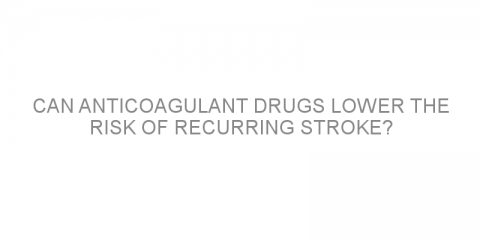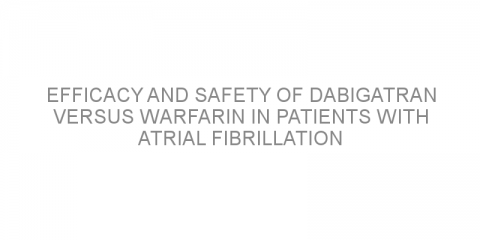In a nutshell This study investigated whether anticoagulants were effective at preventing second stroke in patients with atrial fibrillation, and when treatment should be started. They concluded that anticoagulants are more effective than antiplatelets, and are most effective when administered between 4 and 14 days after the first stroke. Some...
Read MoreRisk factor(s) for ischemic stroke-Arrhythmia-Atrial fibrillation or flutter Posts on Medivizor
Is edoxaban better than warfarin for preventing stroke?
In a nutshell This study investigated if edoxaban is better than warfarin for preventing stroke in patients with atrial fibrillation and blood clots. Some background Atrial fibrillation is an irregular heart beat condition that can cause blood to pool and clot. If a blood clot forms it can be pumped to the brain, blocking off the blood...
Read MoreCould the novel oral anticoagulants prevent stroke?
In a nutshell This study investigated the current antithrombotic therapy and the potential benefits of novel oral anticoagulants (apixaban, dabigatran) in patients with atrial fibrillation (AF). Some background One of the major causes of stroke is represented by atrial fibrillation (abnormal heart rhythm). To prevent thrombus (blood clot)...
Read MoreEfficacy and safety of Dabigatran versus Warfarin in patients with atrial fibrillation
In a nutshell This study compared the safety and efficacy of dabigatran (Pradaxa) versus warfarin (Coumadin) in the prevention of stroke. Patients with atrial fibrillation of both Asian and non-Asian ethnicity were included in this analysis. Some background Atrial fibrillation is considered a major risk factor for stroke. Atrial fibrillation is a...
Read More






